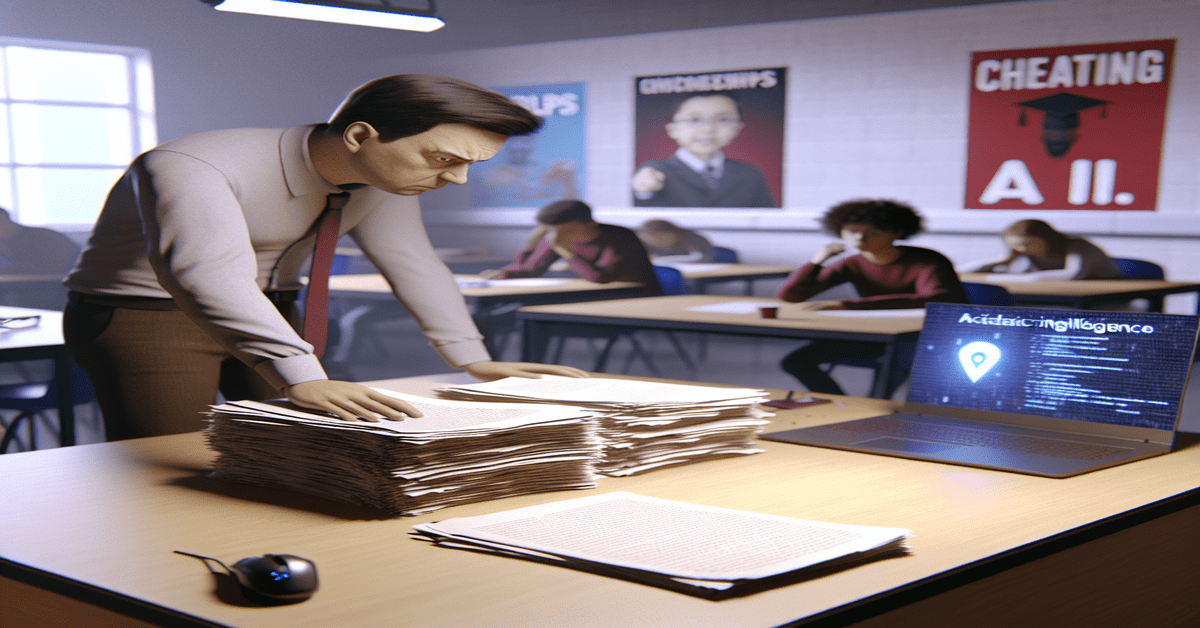The AI Cheating Epidemic: How Schools are Grappling with the Rise of ChatGPT and Other AI Tools
The rise of artificial intelligence (AI) has brought about many exciting advancements across various industries, but it has also created new challenges in the world of education. Schools are now facing a growing problem: students using AI tools like ChatGPT to cheat on assignments and exams. These sophisticated AI models can generate human-like essays, papers, and other written content, making it increasingly difficult for teachers to detect and prevent academic dishonesty.
The Complexity of AI-Generated Content
One of the primary reasons schools are struggling to address AI-aided cheating is the complexity of the content generated by these tools. AI models like ChatGPT have been trained on vast amounts of data, allowing them to produce written work that closely resembles human writing. This makes it challenging for teachers to distinguish between student-written assignments and those generated by AI.
Moreover, the rapid evolution of AI technology means that detection methods quickly become outdated. As AI models become more advanced, they can generate content that is even more difficult to identify as machine-generated. This creates an ongoing cat-and-mouse game between educators and students who use AI to cheat.
The Impracticality of Reliable Detection and Prevention
Given the sophistication of AI-generated content, it is becoming increasingly impractical for schools to reliably detect and block AI-aided cheating. While there are some tools available that claim to identify AI-generated text, their effectiveness is limited and often relies on specific patterns or quirks in the AI’s output. As AI models improve, these detection methods may become less reliable.
Furthermore, the widespread availability of AI tools like ChatGPT makes it difficult for schools to prevent students from accessing them. These tools are often free or low-cost, and students can use them from their personal devices outside of school. Blocking access to these tools on school networks or devices is not a foolproof solution, as students can still use them elsewhere.
The Need for a Comprehensive Approach
To effectively address the issue of AI-aided cheating, schools must adopt a comprehensive approach that goes beyond simple detection and prevention. This may involve:
1. Educating students about the ethical implications of using AI to cheat and the importance of academic integrity.
2. Adapting assessment methods to focus more on critical thinking, problem-solving, and original ideas rather than rote memorization or simple essay writing.
3. Encouraging open communication between students and teachers about the challenges posed by AI and working together to find solutions.
4. Investing in professional development for teachers to help them understand AI technology and develop strategies for identifying and addressing AI-aided cheating.
The Future of Education in the Age of AI
The rise of AI-aided cheating is just one example of how artificial intelligence is transforming the education landscape. As AI continues to advance, schools will need to adapt and evolve to prepare students for a future in which AI plays an increasingly significant role.
This may involve incorporating AI tools into the curriculum to help students understand and work with this technology. It may also require a shift in focus from memorization and repetition to skills like critical thinking, creativity, and adaptability, which will be essential in an AI-driven world.
A Call to Action
Addressing the challenge of AI-aided cheating will require a collaborative effort from educators, students, parents, and policymakers. We must work together to develop effective strategies for promoting academic integrity and preparing students for the future.
If you’re an educator, consider reaching out to your colleagues and administrators to start a conversation about AI and its impact on education. If you’re a student, reflect on the ethical implications of using AI to cheat and commit to upholding academic integrity. And if you’re a parent or community member, support your local schools in their efforts to navigate this new landscape.
Together, we can ensure that the rise of AI in education is an opportunity for growth and innovation rather than a threat to the values of honesty, hard work, and genuine learning.
#AICheating #AcademicIntegrity #FutureOfEducation
-> Original article and inspiration provided by Pauline Smith (KHOU)
-> Connect with one of our AI Strategists today at Opahl Technologies


